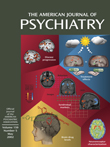The Mind-Body Problem
To the Editor: Dr. Kendler has performed a highly useful service; in principle, the issue is conceptually central in psychiatry. However, the various traditional dualist and monist “solutions” he describes are untenable, as many centuries of analysis have demonstrated and as is well known (1). The standard available options bristle with internal unresolvable logical contradictions.
I call attention to radical contemporary ontological approaches that begin to offer some hope of progress. These concern three related assumptions: one concerning the nature of inanimate matter, the Cartesian bifurcation into an inner and outer world, and the so-called “referential-instrumental” conception of language. While these assumptions may be acceptable and useful in many contexts and applications, strong arguments have been made to show that they are inadequate when it comes to psychiatric and psychological matters. Typically, these arguments are ignored or brushed aside.
Three major unorthodox works have addressed these issues (2–4), and I have sought to integrate their sense into two articles (5, 6). I submit that it would be worth exploring these radical alternative perspectives. It would seem that if one is to obtain any understanding of consciousness beyond the present correlational dual views (those that simply correlate physical and “mental” events) or monistic reductionist conceptions, then the old options concerning “solutions” to the mind-body problem need to be abandoned.
1. McGinn C: Problems in Philosophy: The Limits of Inquiry. Cambridge, Mass, Blackwell, 1993Google Scholar
2. Smith W: The Quantum Enigma: Finding the Hidden Key. Peru, Ill, Sherwood Sugden, 1995Google Scholar
3. Olafson F: What Is a Human Being? A Heideggerian View. New York, Cambridge University Press, 1995Google Scholar
4. Griffin DR: Unsnarling the World-Knot: Consciousness, Freedom, and the Mind-Body Problem. Berkeley, University of California Press, 1998Google Scholar
5. Berger LS: Psychotherapy, biological psychiatry, and the nature of matter: a view from physics. Am J Psychother 2001; 55:185-201Medline, Google Scholar
6. Berger LS: Psychoanalytic neonate models and non-Cartesian frameworks. Psychoanal Rev 1996; 83:49-65Medline, Google Scholar



